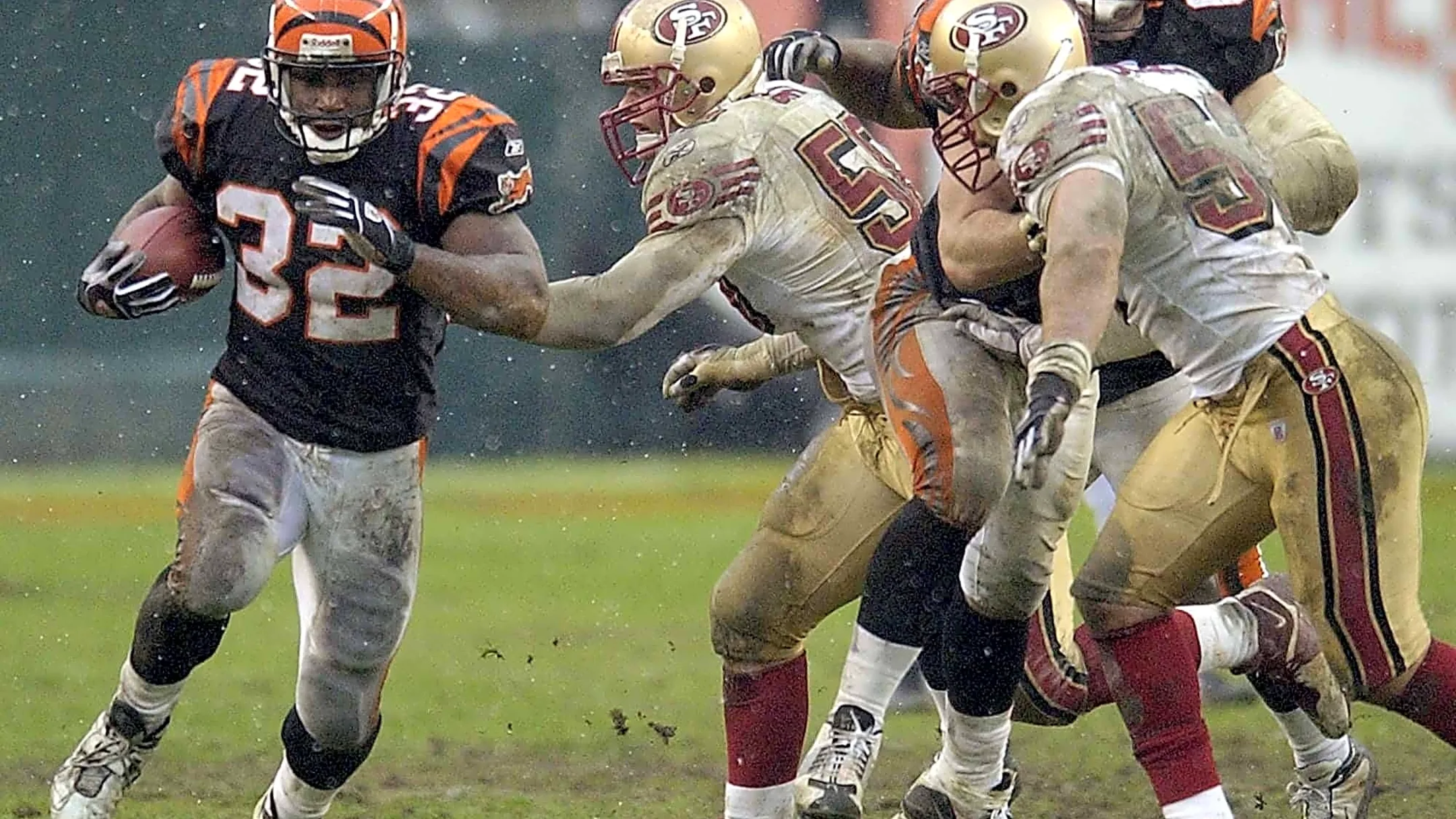By Justin Rimpi,Total Apex Sports
Copyright yardbarker

You know that feeling when you’re scrolling through your phone and something just stops you cold? That happened to a lot of us on Tuesday when news broke that Rudi Johnson, the former Cincinnati Bengals bruiser who could pound the rock like nobody’s business, had died at just 45 years old.
The details are as heartbreaking as they come. According to Miami-Dade authorities, Johnson took his own life Monday night in Florida, another devastating reminder that the demons following too many former NFL players don’t always stay in the locker room when their careers end.
A Workhorse Who Carried the Bengals On His Back
Let’s talk about what Johnson meant to Cincinnati football, because this wasn’t just some guy who happened to play in the NFL. This was a dude who legitimately carried the Bengals franchise during some lean years and helped them taste the success they hadn’t experienced in decades.
After getting drafted in the fourth round out of Auburn in 2001, Johnson spent his first couple of seasons mostly watching from the sidelines. But when his number finally got called in 2003, he exploded onto the scene like he’d been storing up energy for years. That breakout season saw him rush for 957 yards, and it was just the appetizer for what was coming.
From 2004 to 2006, Johnson put together one of the most dominant three-year stretches in Bengals history. We’re talking 1,454 yards, then 1,458 yards, then 1,309 yards – the kind of consistency that makes fantasy football owners weep with joy. Those first two seasons remain the top rushing totals in franchise history, which tells you everything about how special this guy was.
The Guy Who Made the Pro Bowl Look Easy
Johnson’s 2004 Pro Bowl selection wasn’t some honorary thing either. The man earned it by grinding out 12 touchdowns and nearly 1,500 yards while helping Cincinnati win its first AFC North title since the division was created. Watching him run was like witnessing a masterclass in old-school, between-the-tackles football.
What made Johnson special wasn’t just the numbers – though 5,742 career rushing yards with Cincinnati and 48 touchdowns will get your attention. It was the way he approached the game. No showboating, no social media grandstanding, just pure football. His agent, Peter Schaffer, nailed it when he said Johnson “disdained self-promotion and avoided the spotlight.”
The Silent Battle That Too Many Are Fighting
Here’s where this story gets really heavy, and it’s something we can’t keep dancing around in the NFL world. Johnson’s family had reportedly noticed him struggling with mental health issues and potential CTE effects that he simply couldn’t overcome. Sound familiar? It should, because we’ve heard variations of this story way too many times.
Johnson’s agent made a powerful statement that should make everyone in the NFL offices uncomfortable: “The NFL and the scientific community must do more — more research into CTE, more innovation into how we can treat it, prevent it, and provide support to those living with it.”
You can almost hear the frustration in those words, can’t you? Another former player gone too soon, another family destroyed, another reminder that the game we love extracts a price that goes way beyond the injury reports we see on Sunday.
A Legacy That Transcends Statistics
Mike Brown, the Bengals president, summed up what Johnson meant to the organization perfectly: “He was dependable and productive as a player, and very popular among his teammates. Everyone liked him and saw him as a dear friend.”
That’s the thing about Johnson that makes this loss sting even more. By every account, he was genuinely one of the good guys. Auburn called him “one of the best to ever wear the orange and blue.” His teammates loved him. His agent considered it “one of the greatest honors” to represent him.
After his playing days, Johnson created a foundation focused on helping children and families through community programs. Even in retirement, he was still trying to make the world better for others while fighting battles most people never saw.
When the Cheering Stops
Johnson’s story is a painful reminder that for too many former NFL players, the hardest opponent they’ll ever face isn’t waiting in the other team’s uniform. It’s waiting in the mirror, in the quiet moments when the stadium lights are off and the cheering has long since stopped.
The NFL has made strides in recent years regarding player safety and mental health resources, but stories like Johnson’s make it clear there’s still so much work to be done. These aren’t just statistics or case studies – these are human beings who gave everything they had to entertain us on Sundays.
Rudi Johnson deserved better than this ending. His family deserves answers. And current and former NFL players deserve a league that takes their long-term health as seriously as it takes the bottom line.



